Student halls were packed to capacity despite Covid warnings, BBC documentary discovers
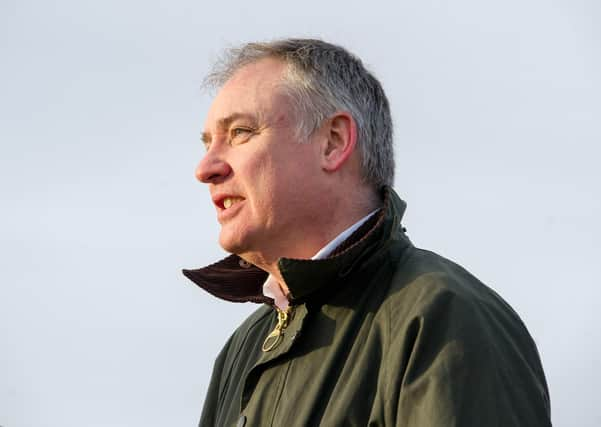

Disclosure: Covid on Campus on BBC One Scotland tonight (Monday) at 7.40 pm, found several student halls operated at full capacity despite the risks being known and the need for physical distancing due to Coronavirus infections.
It also found that guidance on offering remote teaching was changed at the last minute, which a union claims pressured students into returning.
Professor Stephen Reicher, who advises both UK and Scottish governments, told the programme that the risks were pretty clear, saying: ‘In many ways this was an accident waiting to happen.’
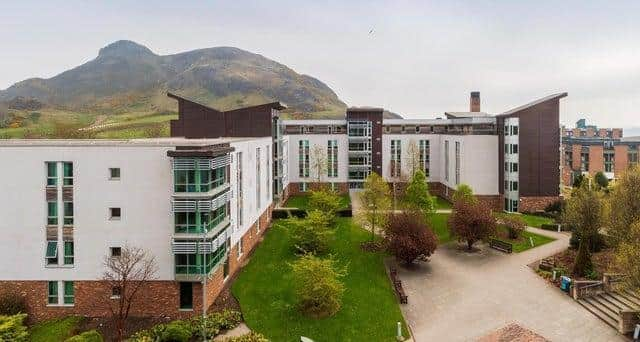

Advertisement
Hide AdAdvertisement
Hide AdProf Reicher said he and others spoke publicly about the need for widespread Covid testing when students returned but this was never done.
After they had packed into student halls, hundreds then tested positive for the virus and thousands more were told to self-isolate.
The situation became so bad that St Andrews University, which had "strongly recommended" students return to the town, asked them to observe a "voluntary lockdown".
Disclosure found that there have so far been 1,500 positive tests among students in halls - 10 per cent of all cases in Scotland since September 19.


Advertisement
Hide AdAdvertisement
Hide AdThe programme also found that some universities cut the number of students by as much as half but St Andrews University, Edinburgh University and the Royal Conservatoire of Scotland, in Glasgow, operated their halls at full capacity. Eight others would not tell the BBC whether or not they cut numbers to allow physical distancing.
Politicians have previously suggested that the return of students appears to have eased some of the financial pressures on higher education.
In May, at the height of the pandemic, the Scottish Funding Council predicted losses of up to £500m for the sector but universities are thought to have performed better due to higher than expected numbers of students.
The Disclosure programme heard that, as late as August 31, draft government guidance for Scottish universities said "work and study that can be done remotely must be done so".
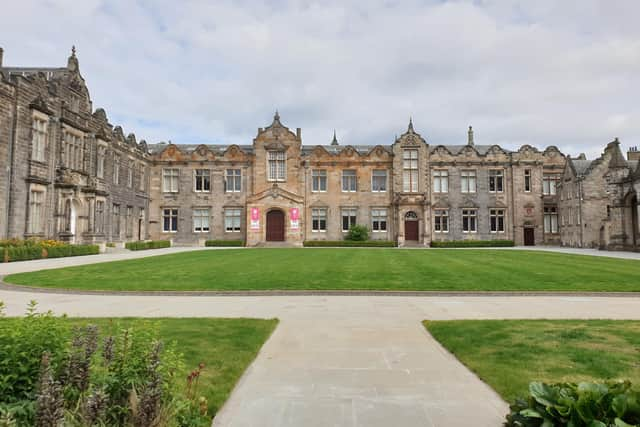

Advertisement
Hide AdAdvertisement
Hide AdThis would have meant that many students did not have to travel to university to take part in their course,
The Scottish branch of the University and Colleges Union (UCU) says this was changed to instead focus on "blended" or "hybrid learning" and asked institutions to make "reasonable efforts" to facilitate remote working. The guidance was changed overnight without the knowledge of the University and Colleges Union and published on September 1.
The UCU believes the change was made to allow universities to market more face-to-face teaching and bring students back to campus.
Carlo Morelli, from UCU Scotland, said: "That means that students are being told that they cannot complete their degrees and study, remotely. They will miss too much of their studies if they don't come to campus.
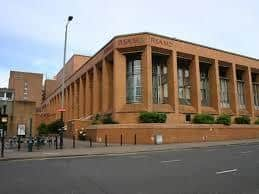

Advertisement
Hide AdAdvertisement
Hide Ad"And if you're telling students they have to come to campus, then they're going to have to take up the accommodation that's offered to them. So the push was from the universities to get students to come and take up their place in accommodation."
The Disclosure investigation also found that some universities are subject to "nomination agreements" with private accommodation providers.
The agreements see universities enter deals with private developers to provide modern attractive accommodation. These deals may include guarantees from universities that a certain percentage of the rooms will be filled each year.
Edinburgh University has eight nomination agreements in place, with a fifth of its students living in accommodation rented from private providers.
Advertisement
Hide AdAdvertisement
Hide AdIt said: “We have 42 student residences: of these, 8 are subject to nomination agreements, where we pay rent to a commercial landlord for buildings not owned/operated by the University and where we place some students whose accommodation contract is with the University.
“Of the total students the University has the capacity to accommodate, approximately one-fifth are in residences where a nomination agreement is in operation.
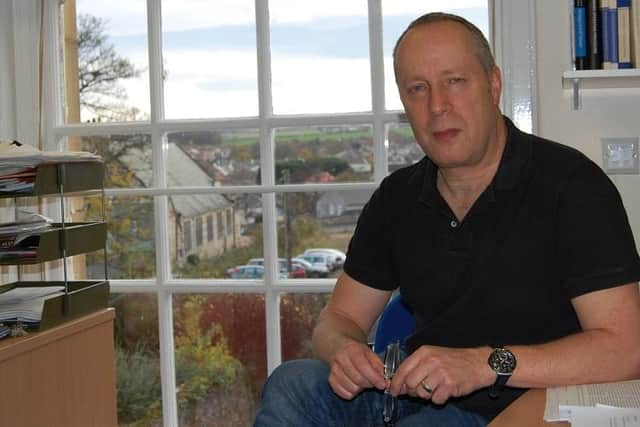

“Throughout the pandemic our prime concern has been, and remains, the health, safety and general well-being of our students and staff. This will always come before any financial considerations.”
Financial analyst Louise Cooper told the programme that there had been an explosion of student numbers in recent years and universities had turned over their property portfolios to private developers.
Advertisement
Hide AdAdvertisement
Hide AdBut she said the "risk" of the properties being empty was generally being borne by the universities.
"The underlying model requires high occupancy, students in there, paying their weekly, monthly rents,” she said. “As ever, you need to follow the money.”
Edinburgh University did not reduce the capacity of its halls but its vice-chancellor, Prof Peter Mathieson, said the decision to bring students back was not financial.”
"It was a decision driven by our belief that we want to provide the best possible student experience that we can,” he said.
Advertisement
Hide AdAdvertisement
Hide AdProf Mathieson said the university had focused on making the teaching environment safe for students and staff. In May, it was reported that it faced £150 million financial shortfall due to Covid. At the time, Prof. Mathieson added that all staff faced a pay freeze with all promotions, increments and contribution awards suspended.
Alastair Sim, from Universities Scotland, also said universities were ‘prioritising learning’.
Prof Reicher, a professor of social psychology at St Andrews, said that when experts looked at the US data it was "pretty clear that going back to university was a real risk".
He said everyone should have been tested when they arrived and they should not have been allowed to mix together until later.
Advertisement
Hide AdAdvertisement
Hide AdHigher Education minister Richard Lochhead said the advice was that testing capacity should be focused on students who had symptoms of Covid.
He added: “We've done our best. I accept we'll look back on this and think we've made mistakes, because we're all dealing with a very difficult situation, where there are no easy options.”
A message from the Editor:
Thank you for reading this story on our website. While I have your attention, I also have an important request to make of you.
The dramatic events of 2020 are having a major impact on many of our advertisers - and consequently the revenue we receive. We are now more reliant than ever on you taking out a digital subscription to support our journalism.
Subscribe to the Edinburgh Evening News online and enjoy unlimited access to trusted, fact-checked news and sport from Edinburgh and the Lothians. Visit https://www.edinburghnews.scotsman.com/subscriptions now to sign up.
By supporting us, we are able to support you in providing trusted, fact-checked content for this website.
Joy Yates
Comment Guidelines
National World encourages reader discussion on our stories. User feedback, insights and back-and-forth exchanges add a rich layer of context to reporting. Please review our Community Guidelines before commenting.